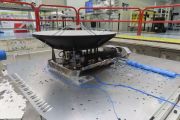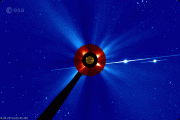
Copernical Team
SpaceX rocket left behind a plume of chemical pollution as it burnt up in the atmosphere
We're checking your connection to prevent automated abuse
Atom-thin electronics withstand space radiation, potentially surviving for centuries in orbit
We're checking your connection to prevent automated abuse
Flexible force fields can protect our return to the moon
We're checking your connection to prevent automated abuse
Week in images: 16-20 February 2026

Week in images: 16-20 February 2026
Discover our week through the lens
SpaceX launch to feature rare booster landing in Bahamas
We're checking your connection to prevent automated abuse
A 'blood moon' is coming to the US in March—and the next good one isn't until 2029
We're checking your connection to prevent automated abuse
NASA moves forward with Artemis II tanking test that could set up moonshot mission
We're checking your connection to prevent automated abuse
The stellar lifecycle in a nearby spiral
 Image:
The stellar lifecycle in a nearby spiral
Image:
The stellar lifecycle in a nearby spiral Earth from Space: Ouarzazate, Morocco
 Image:
The Copernicus Sentinel-2 mission takes us over south-central Morocco, near the city of Ouarzazate.
Image:
The Copernicus Sentinel-2 mission takes us over south-central Morocco, near the city of Ouarzazate. Smile sets sail for Europe’s Spaceport in French Guiana

Just over a year since Smile arrived in the Netherlands in two parts, the now-complete and thoroughly-tested spacecraft has left for good. With a launch window set for 8 April – 7 May on a Vega-C rocket, the joint European-Chinese mission is almost ready to embark upon its unique space mission.




































